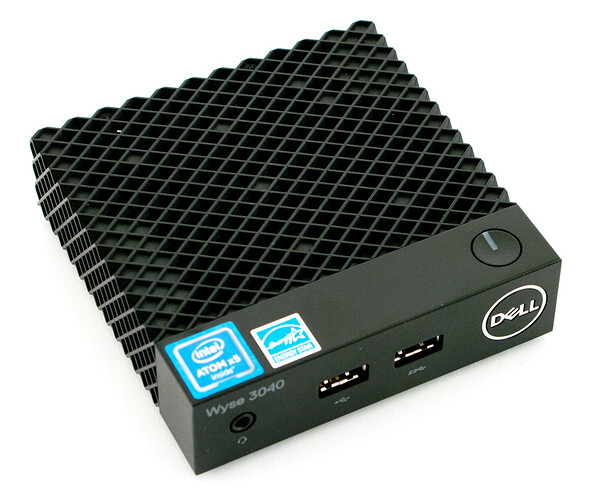If you are after a simple and cheap device to use as a Roon Bridge the this is a winner IMHO.
Dell Wyse 3040 Thinclient.
They are abundant on eBay and going for cheap (Bulk clearance sales especially - make sure you get one with WIFI) (I picked up the 3040 for AUD$55 delivered)
Seeing as Pi’s are rare at the moment and really expensive they make a good option.
It is not going to replace Ropieee with its multitude of functions and it is going to rely on a USB DAC for output.
I use this with a Topping D10s and it makes a wonderfully affordable end point setup - wasn’t sure how it would go but seems to be rather solid and holding up nicely.
For those interested the build steps are below:
First Create bootable Ubuntu Server USB via Balena
Start up the Dell 3040
Should be an option for F12 to bring up boot menu
Boot into bios setup
Unlock 3040 - Google if unsure - many tutorials
Enable USB Boot
Disable secure Boot
Remove/Disable any and all passwords
Enable all USB ports
Disable onboard audio
Disable Network Boot too if you like
Insert USB installer and Reboot
Should be an option for F12 to bring up boot menu
Select USB for boot
Install Ubuntu server
Set Network to both as DHCP
Add your wifi network and enter password
*ensure both have IP before moving on - give it a second
Enable SSH server on install
Add the usual usernames and passwords
Let it go. Will take some time as it will also install security updates
The internal flash storage isn’t as fast as an SSD it seems.
Then SSH in using your username@ipaddress and enter your password - much easier to work on this way.
Run all updates and upgrades
$ sudo apt-get update
$ sudo apt-get upgrade
Install bzip2
$ sudo apt-get install bzip2
Install ALSA
$ sudo apt-get -y install alsa-base
Install Roon Bridge using easy installers
Roon Bridge x86_64
$ sudo curl -O https://download.roonlabs.net/builds/roonbridge-installer-linuxx64.sh
$ sudo chmod +x roonbridge-installer-linuxx64.sh
$ sudo ./roonbridge-installer-linuxx64.sh
Reboot for good measure
$ sudo reboot
I think that’s everything and all being well the unit will pop up on your Audio settings page in Roon!!
Plug in your USB DAC and configure as you wish.
**Addendum to fix a slow network configuration where it waits for the other interface thats not connected:
From SSH CMD prompt
cd /etc/netplan/
ls
00-installer-config-wifi.yaml 00-installer-config.yaml
This shows both network configs from default Ubuntu install.
Need to make a small change to these by adding:
optional: true
to both configs.
You can see the standard texts below with the added line.
Keep the formatting by using space in the editor.
using nano to update these files
First interface:
$ sudo nano 00-installer-config-wifi.yaml
This is the network config written by ‘subiquity’
network:
version: 2
wifis:
mlan0:
access-points:
yourwifissidhere:
password: yourwifipasswordhere
dhcp4: true
optional: true
ctrl+O then enter to write
ctrl+X to exit
Then the second interface:
$ sudo nano 00-installer-config.yaml
This is the network config written by ‘subiquity’
network:
ethernets:
enp1s0:
dhcp4: true
optional: true
version: 2
ctrl+O then enter to write
ctrl+X to exit
$ sudo netplan apply
$ sudo reboot
Should be a lot faster on booting.

